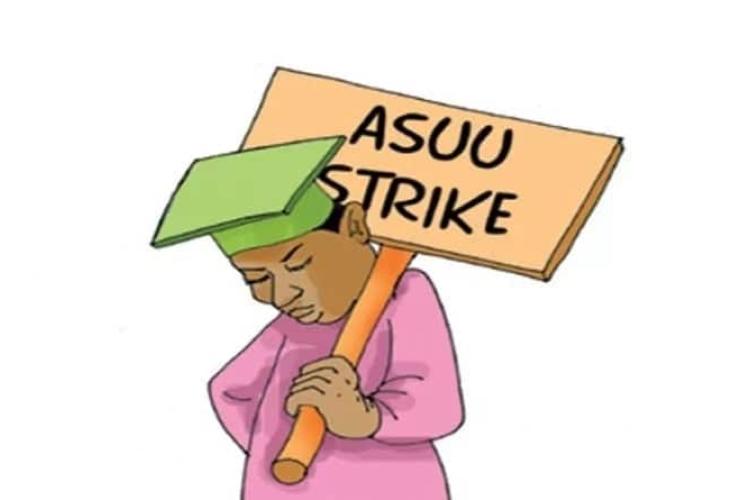President Muhammadu Buhari has set up a committee to look into the demands of the Academic Staff Union of Universities (ASUU).
The union has been on strike since February over the revitalisation of public universities, payment of earned academic allowances and the deployment of the University Transparency and Accountability Solution (UTAS) for payment of university lecturers’ salaries, among others.
- ASUU Strike: Gombe varsity asks lecturers on study leave to resume
- Prolonged strike: How state varsities are pulling out of ASUU struggle
Amid the strike, the government had invoked the ‘No work, no pay’ policy, insisting that the lecturers would not be paid for the period they stayed away from work.
The lecturers had kicked against this as the strike lingered.
But at at meeting with Pro chancellors and Vice Chancellors in Abuja on Tuesday, Malam Adamu Adamu, Minister of Education, announced that the Federal Government had set up a committee to revisit the issue.
Adamu said the committee is made up of four Pro-Chancellors and four Vice Chancellors, while he is the chairman.
He said the committee is to look into the additional demands ASUU is making particularly the areas where there has not been consensus.
The minister said he would brief Buhari on the outcome of the meeting.
He noted that the committee will be looking at two major areas of contention, the ‘No Work No Pay’ and remuneration of university lecturers.
While he could not give the time frame for the committee to work, he said giving the atmosphere in the meeting, they are looking at days.
He however said they are not jettisoning the Briggs committee but that it is in continuation of what the committee did.
On if there will be a review on the government side on ‘NO work No Pay,’ he said: “There has been an appeal generally for the system to take a second look at that and that is what the committee will look into.”
Earlier, the Minister said: “Government should not, in the guise of resolving current challenges, sow seeds for future disruptions.”
“For me, the past two weeks have been a very dark period of personal anguish and internal turmoil. I used to deceive myself that in a climate of frankness, and with mutual goodwill, it will fall to my lot to bring an end to the incessant strikes in the education sector. This has not proved possible – or, at least, not as easy, quickly and straightforward, as I used to think,” he said
The minister however noted that the statement by ASUU President that the Union would no longer negotiate with the current Federal Government must be resisted.
He said: “Government and ASUU have no option than to continue talking, until our Universities have reopened their doors to students who, clearly, are the principal victims of the seemingly unending strikes. In the circumstances, therefore, all Councils and Senates of our Universities are enjoined to rise up to their responsibilities.”
“We must, together, continue to work to restore our public universities to where they were in the 60s and 70s. As the most important officers in our university system, Pro Chancellors and Vice-Chancellors, must demonstrate more commitment to ending the ongoing strike,” he added.

 Join Daily Trust WhatsApp Community For Quick Access To News and Happenings Around You.
Join Daily Trust WhatsApp Community For Quick Access To News and Happenings Around You.


